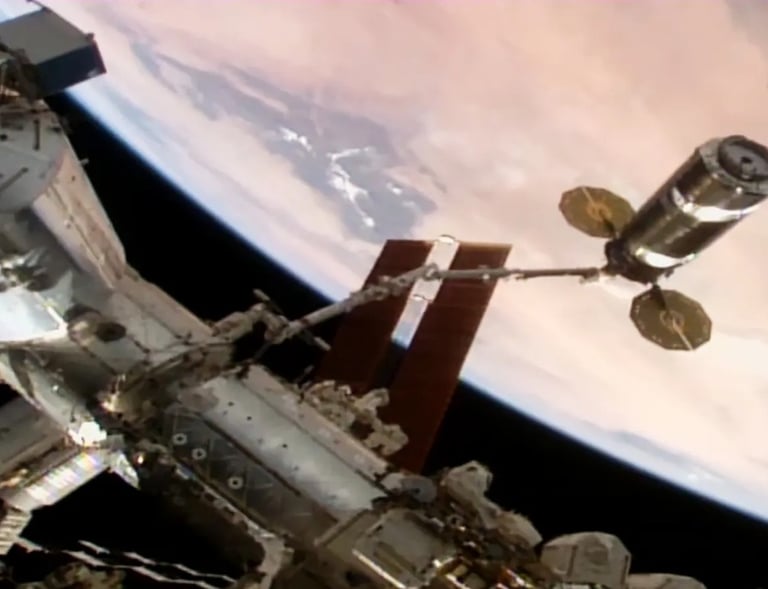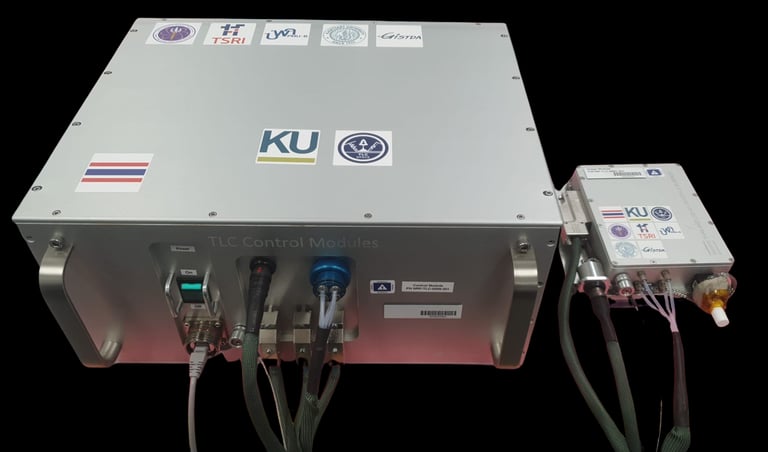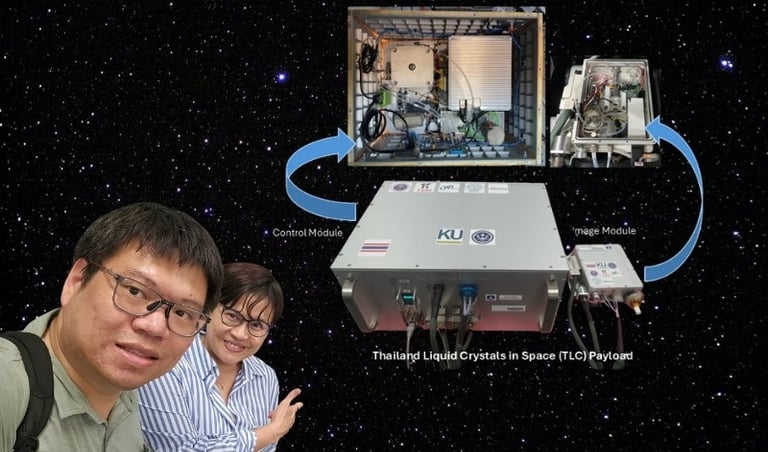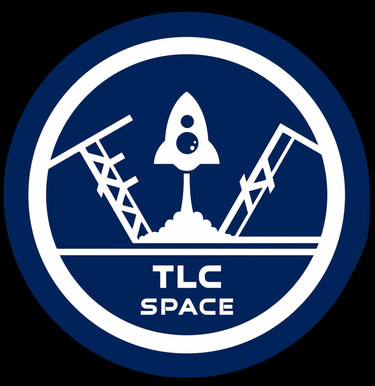Northrop Grumman's cargo spacecraft successfully delivers liquid crystal research equipment from Kasetsart University to the International Space Station!
9/19/20252 min read


A cargo spacecraft successfully arrived at the International Space Station (ISS) on the morning of September 19, 2025 (Thailand time), following a one-day delay due to an engine malfunction. This mission holds great significance for Thailand, as the spacecraft carried a “payload” — experimental equipment for liquid crystal research from the Thailand Liquid Crystals in Space (TLC) project, developed by Kasetsart University. This marks a major milestone for the Thai scientific community.
Astronauts used the space station’s robotic arm to capture and berth Northrop Grumman’s uncrewed Cygnus spacecraft while it was orbiting above the African continent.
The cargo spacecraft, carrying over 5,000 kilograms of supplies, was originally scheduled to arrive at the ISS on Wednesday, September 17. However, a problem occurred when the spacecraft’s main engine shut down prematurely during a boost phase. Engineers at Northrop Grumman later determined that the issue was caused by overly strict software configuration settings, which triggered an early shutdown before reaching the target.


The experimental equipment from the TLC (Thailand Liquid Crystals in Space) project was developed by a research team from Kasetsart University, led by Assoc. Prof. Dr. Natthaphon Chattam. The objective of the experiment is to study the behavior of liquid crystals in a microgravity environment. This research will allow scientists to gain a deeper understanding of the fundamental properties of liquid crystals, paving the way for the advancement of Liquid Crystal Display (LCD) technologies in the future — improving response time, reducing power consumption, and enhancing image clarity. These improvements will be highly beneficial for technological developments both on Earth and in space exploration missions.
In addition to Thailand’s research payload, this particular Cygnus cargo spacecraft is a special extended version that also carried food, scientific research instruments, and spare parts for various systems aboard the International Space Station. Northrop Grumman named this latest Cygnus vehicle "S.S. Willie McCool", in honor of the space shuttle Columbia astronaut who tragically perished in the 2003 disaster.
The launch of Thailand's research equipment into space marks a significant milestone, showcasing the capabilities and potential of the Thai scientific community to collaborate with global space agencies like NASA in conducting valuable research that contributes to the development of next-generation technologies.


